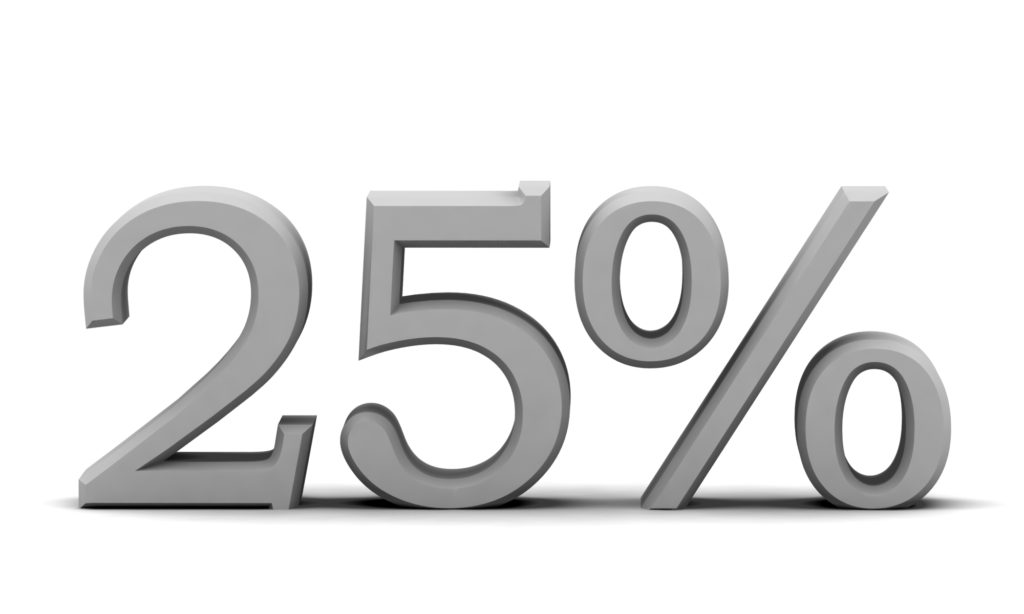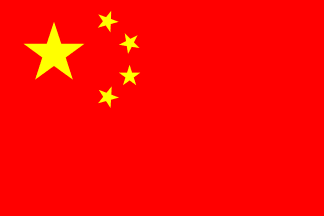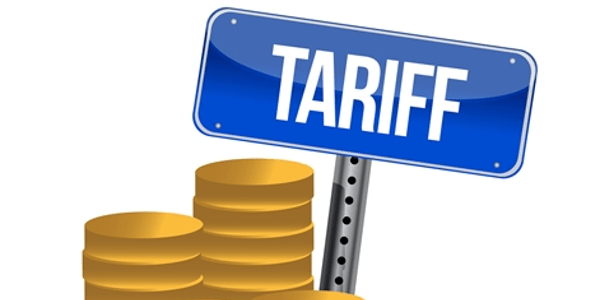Ugh Tariffs!
As I was perusing the CNBC app on my phone yesterday, I noticed that President Trump is losing his patience with China and the trade negotiation situation.

Based on what I read, it looks like the US government is getting ready to tag on the much dreaded 25% tariff to many products imported to the US from China, including fabrics. They also plan to apply the tariff to $325 billion worth of additional stuff. This is going to come as a big surprise as much of the talk on the trade negotiations of late intimated that the negotiations were getting closer to being finalized.

In any case, I wanted to discuss the impact of this tariff on our industry and my companies.

As I have been saying for a little while now, most of the Jaftex companies fortunately don’t do much business in China and have avoided a lot of this drama. If anything, it seems like only Freespirit had some of their digital fabrics and sateen 108″ quilt backs produced there. In anticipation of the potential 25% tariff, we got ahead of it by ordering as much as we could at the 10% tariff and then we moved all production away from China. That is going to prove to be a very lucky decision. With that, you can rest assured that we thankfully won’t be raising prices due to this situation anytime soon.

As for the rest of the industry, all those relying on China exclusively are going to have to deal with the additional 15% tariff that’s added to the current 10% which was semi-bearable. That is no doubt a big tariff to swallow and will likely have a couple of different impacts on fabric suppliers which I discuss below.

For one, a lot of fabric manufacturers will be urgently looking to move away from Chinese production. It is likely that Pakistan will get a lot of that business especially on digital and 108” as the options are limited on those two products. For 45” quilting cottons, there are a few more options than on 108″ and digital. Countries like South Korea, Pakistan, India and even the US will be the beneficiaries there.

Another issue is that companies that are trapped (all production is in China) in the tariff are going to have to figure out how to deal with pricing and fast. The reality is that they are likely to price themselves out of the current range of prices that exist in the market. Fabric resellers can only bear to pay a certain price for quilting cottons and this tariff is going to force them out of that price zone and into troubled waters. Needless to say, some difficult decisions will have to be made if these companies want to remain healthy and survive.

I am afraid that this may lead to fabric price inflation i.e. higher prices. If China is taken out of the fabric production equation, mills in other countries may try to raise prices as the demand for their services will be increased. This of course will not be a good thing. You might think that I will be happy about higher prices, but I am definitely not. Higher prices would probably negatively impact our sales volume which we do not want and quite frankly we can’t afford at this time….or anytime for that matter.

Lastly, I wanted to mention that the companies that will likely be most impacted by this tariff are the chain stores. They get a very large portion of their fabrics and other products from China and this is certain to hurt. I am sure that today will not be a good day for all buyers that are buying predominantly from China and they will all be scrambling to prevent these tariffs from negatively impacting their bottom lines.
It is uncertain how long these increased tariffs will last, but let’s hope they aren’t permanent. Also, it is hard to say how quickly US prices will reflect the tariffs for the fabrics from those companies impacted. In the end, this may be good for our country, but it’s not going to be good for our already fragile fabric industry. Those are my two cents. What do you think?
19 Comments
Vickie
It’s a complicated issue. But I do know that once prices go up, you rarely see them go down….just saying
Kara Benavides
In the fabric industry, are you able/ is it a thing to negotiate pricing for a specific time? (can’t think of the term) Do you have contracts with companies on cost? I am guessing that is “of course”. So can you negotiate contracts for more than one run of a particular line? Or is it by line and not time? Think I know the answer. But I will post anyway.
Nancy
As a small retailer I am relieved to know that the majority of Jaftex products are not made in China. In the past, I have found that some fabrics from China and Pakistan are of very poor quality and cost as much as those from Japan. Thanks for keeping us informed.
V Denniston
I can’t even begin to understand all of this, except I heard higher prices. That’s bad news…
Scott Fortunoff
Hi Kara,
Our prices are pretty stable. We always push back when our suppliers try to raise prices if they don’t have a legitimate reason i.e. rising cotton prices or something like that.
Scott
Barbara Esposito, TheQuiltedB
So much information, so many good points in the comments. It is true that this is, in fact, a multi-faceted and complicated situation. Thankfully your family made wise decisions early in the game. Let’s all hope and pray for a positive outcome!
Susan Sorrells
Scott I really appreciate you taking the time to explain this so thoroughly. I’m probably not the only consumer that bases an opinion on too little information. I feel I understand this much better now. Thank you.
Scott Fortunoff
Great Susan. Glad to have been able to clarify it for you.
Karen Grof
Scott,
Once again, I am very grateful for a thoughtful, even handed and informative blog post from you which bring a vital industry situation, Tariffs on Chinese goods, into an open conversation.
I have pondered and researched this issue on multiple levels for more than a year now. My concern is multi-faceted; economic, national security, privacy and personal welfare among others. I know that this is also a very complicated issue. As a business owner, I must make decisions based on information that I cannot share with my employees or customers. For that reason, my customers and employees do not always agree with everything I do. They must trust that I choose to do what is best for all and not what is selfish or only self-serving. I believe that my company has earned that trust. Without great employees and customers, I have no business. I will never do anything that is not best for them.
All that to say that I believe the US Government is making the best decisions they can with the information they have (which I do not have) and those decisions are in my best interest. I base that belief on the results of US policies during the past several years which have led to positive economic and security developments in America.
I hope that the unfortunate but probably necessary US tariffs will lead to a better future. I have wondered for a while why there is not more textile and other industry in the western hemisphere. I share your genuine concern for our neighbors to the south. I have friends in Central and South America including Venezuela. I am heart broken over the situation at our southern border.
Why are so many Central American countries with so many natural resources still underdeveloped and offering so little opportunity to their citizens? Why are countries such as China, Russia and Iran investing in the economies and infrastructure of our closest neighbors? Why are US businesses willing to import goods from our foes and willing to lobby our government to ease tariffs but seemingly not willing to invest in establishing business opportunities at home or in neighboring countries?
These are not rhetorical questions. I really want solutions to economic, geo-political and humanitarian problems. I have even considered asking executives in the textile industry to work toward bringing mills back to the Americas. It is complicated but we are the country that went from Kitty Hawk to space flight in less than 60 years! Think about that.
Loey KRAUSE
Bad short term possibly, but good for the nation long term. Decades ago the US lost the textile industry and many others to unfair trade practices in China and Japan. Tariffs are one way to get China to trade fairly in exchange for a reduction or removal of tariffs. The long term is to support US manufacturers and bring those industries back home again. In the long run that will improve quality and reduce prices as they won’t have to ship from China.
Scott Fortunoff
Hi Loey,
I am not sure that the tariffs are going to force fabric production back to the US, but it will more likely help in other industries. Guess it is a wait and see now.
Stay tuned.
Scott
Carin
You are correct. My concern as the market tries to move to other countries is that these countries may not have the capacity to produce the amount needed to replace what is being manufactured in China, therefore more demand will also drive higher prices there. The end consumer here in the end will be the one suffering the increases.
Scott Fortunoff
Agreed Carin, but we are not there yet and I don’t think there is going to be such a massive surge in volume overall to these new countries. Also, our industry is pretty flat so barring some major surge in quilting fabric demand, the capacity in other countries should be able to take up the slack without too much change.
Becki
I do everything I can to support my LQS. Customer service is everything to me and I have friends who own and/or work in LQS so I know they are doing what they love and trying to put food on the table.
Scott Fortunoff
Hi Becki,
They are lucky to have you as a customer. Have a great week.
Scott
Michelle
I feel your pain. It is going to be especially hard for small brick and mortar shops to afford to buy at wholesale , let alone pass the increases on to their customers.
Scott Fortunoff
Hi Michelle,
Thanks for your message. Again, the issue is only if the tariff is raised and if the shop has to buy the Chinese goods. If they can avoid buying the more expensive Chinese products, they will be ok.
Scott
Birkenstock Barb
Thanks for the info scott! Luckily since oct I have been buying LOTS of kaffe fabrics… all on sale, all over Florida, and Paducah! It’s amazing how the older prints are still out there, and how many quilt shops are going out of business! The cotton is still grown here, then sent overseas to be woven, and printed and returned! The retail free spirit ranges from 9.99-14.99 per yard now…same fabrics, different markups! I’m a retired art teacher and these fabrics are just soooo artistic. So glad you bought free spirit! I still put Elvis fabric somewhere in each quilt from my vast fabric supply! You could produce some new Elvis ? designs! He’s so comforting to sleep with!! You are doing a great job, and talking right to us! Thanks????❤️
Tammy Arp
A “million years ago” I worked for a manufacturing company that produced decorative storage. All of our fabrics were printed in China and Pakistan. All of the actual products were constructed in China. We discussed the option of moving production to Mexico. Is that an option? I can’t recall if we sourced a fabric printing facility there.